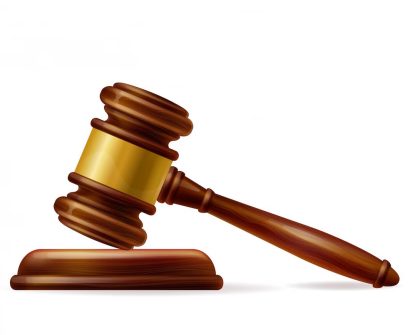
The caveat in the Civil Procedure Code (CPC) plays a crucial role in protecting people and organizations as they navigate the complex legal system. A caveat protects the rights and interests of the caveator by acting as a proactive legal notice, warning against taking any action without first notifying them.
By guaranteeing that parties have the chance to present their case before the court moves forward, this legal mechanism upholds the values of justice and due process.
explain caveat under cpc
- The caveat section in cpc is dealt within Section 148A.
- People have the right to file a caveat under Section 148A if they believe that a case against them has been filed, or is about to be filed, in any kind of court of law. In the following situations, the Caveat may be filed as a petition:
- In the course of an ongoing lawsuit or litigation, where an application has been filed already or is scheduled to be filed;
- In the event that a lawsuit is about to be filed, where an application is anticipated to be filed.
Therefore, it is always regarding an application in a suit or proceeding. Secondly, that suit or proceeding may be one that is instituted now and is ongoing, or it may be one that is not instituted now but is anticipated to proceed in the future. The ability to file a caution arises in each of these circumstances.
caveat under cpc: Who Can File?
- Section 148A states that anyone who has a right to appear before the court with regard to the suit in question, regardless of whether they are related to the lawsuit, may file a caveat.
- Therefore, if a third party has any connection to the lawsuit in question, they may also file a caveat.
caveat under cpc: Important Contents
The following details ought to be included in a caveat or notice provided to the court stating that specific actions cannot be taken without first notifying the caveator:
- The caveator’s name;
- The caveator’s address at which the notification is to be sent;
- The name of the court that received the filed caveat;
- The lawsuit number and, if relevant, the appeal number;
- A synopsis of the lawsuit or appeal that will probably be filed;
- Names of the respondents and likely plaintiffs, also known as appellants.
Petition of caveat under cpc: Rights to Lodge It
- A caveat may be filed by anyone claiming to have the right to appear in court during the hearing of an application that has been made or is expected to be made in a lawsuit or other legal proceeding.
- The person by whom the application has already been made or is anticipated to be made, as previously stated, will receive a caveat notice from the caveator.
- If an application is filed in any suit or proceeding after the caveat is filed, the court is required to serve notice to the caveator.
- Upon receiving a notice of caveat, the applicant is required to provide the caveator with a copy of the application in question as well as copies of any additional legal documents that may be filed in support of the application.
- A warning is only good for ninety days after the date of filing, unless the application mentioned in Section 148A (1) was started prior to the specified time frame ending.
caveat under cpc case laws
- In the case of Smt. Gangamma v Sri G. Dayanandha, the properties mentioned in the caveat petition and the ones listed in the plaintiff’s schedule were found to be completely different by the Karnataka High Court. As a result, it was believed that the defendant’s petition, which sought permission to appear in court on this issue, was an effort to shield the scheduled property of the caveat petition from any potential interference or risk. Consequently, the defendant’s memorandum was rejected by the court.
- In the case of Yaseen & Ors vs Mahendra Yadav, Naib Tehsildar, the Allahabad High Court made it clear that any time frame impacted by lockdowns or other disruptions to the operation of courts and tribunals should not be included in the ninety-day period that caveats filed under the virtue of Section 148A of the CPC remain in effect. This decision recognizes that outside events like lockdowns and court disruptions can impact the time constraints attached to caveats and that these times shouldn’t be included in the 90-day period.
In accordance with Section 148A, an individual who feels uneasy or afraid that a case against them may be brought in a court of law may file a caveat with the court. Any civil lawsuit, as well as tribunals and forums, may receive a caveat submitted as a petition.
For any latest news, legal topics, judiciary exams notifications, patterns, etc watch Jyoti Judiciary’s YouTube channel for legal videos for any updates at https://youtube.com/@jyotijudiciarycoaching4852?si=2cwubh9d2A9urwJf









